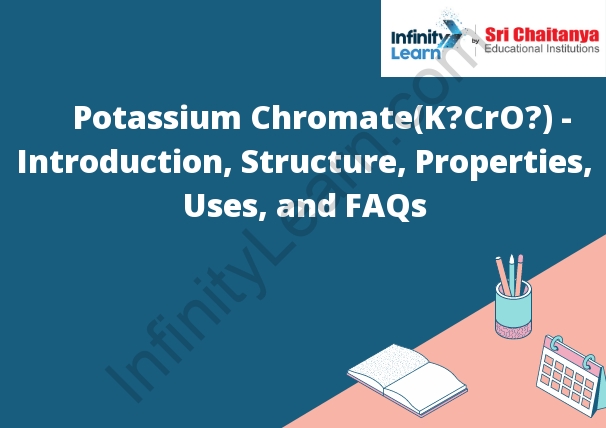Table of Contents
Introduction to Potassium Chromate ; Properties of Potassium Chromate K2CrO4 ;
Uses of Potassium Chromate
Potassium chromate is a potassium salt of chromate with the chemical formula K2CrO4. It is a yellow solid that is slightly soluble in water. It is used in the textile industry as a dyeing mordant, in the manufacture of inks, and as a corrosion inhibitor.

What is Potassium Chromate?
Potassium chromate is a yellowish orange solid that is soluble in water. It is used as a dye and in the manufacture of other chromates.
Structure of Potassium Chromate – K2CrO4
The potassium chromate molecule is made up of one potassium atom and two chromate ions. The chromate ions are each connected to the potassium atom by a single covalent bond. The potassium atom and the chromate ions are all surrounded by a shared electron cloud, which gives the molecule a symmetrical shape.
K2CrO4 Uses (Potassium Chromate)
Potassium chromate is used as a corrosion inhibitor and a mordant in dyeing.
Health Hazards of K2CrO4
Potassium chromate is a dangerous chemical that can cause severe health problems. Chromates can cause skin and eye irritation, and can also be harmful if inhaled or swallowed.
Potassium Chromate Indicator
A potassium chromate indicator is a chemical compound used to indicate the presence of chromium ions in solution. It is a red solid that turns yellow in the presence of chromium ions.
The potassium chromate indicator can be used to test for the presence of chromium in water, soil, and other samples. It is also used in chromatography to determine the concentration of chromium in a sample.
Foods that Contain Natural Potassium Carbonate
Some foods that contain natural potassium carbonate include bananas, avocados, potatoes, raisins, and prunes.
What Happens if Potassium Carbonate is Heated Strongly?
Heating potassium carbonate strongly will produce potassium oxide and carbon dioxide.








